Division Director

Craig Criddle is a Professor in the Department of Civil and Environmental Engineering at Stanford University, and a Senior Fellow at the Woods Institute for the Environment. He is the Institutional Co-I for CUBES at Stanford and the lead of the Biofuel and Biomaterials Manufacturing Division of CUBES.
Dr. Criddle is interested in the environmental engineering, science, and science literacy needed for clean water, clean energy, and healthy ecosystems. His research focus is environmental biotechnology. He is best known for large interdisciplinary field projects, studies of microbial
ecology in bioreactors, and work on microbial transformations of persistent contaminants. Some current projects include a field-scale evaluation of uranium remediation; DNA-monitoring of microbial community structure at full-scale biological wastewater treatment plants; development of membrane bioreactors for energy recovery and nutrient removal; and studies to elucidate the mechanisms and kinetics of microbial transformation of halogenated solvents. To promote science literacy, he worked with award-winning San Francisco cartoonist, Larry Gonick to write "The Cartoon Guide to Chemistry." "Cartoons can give us an intuitive feeling for the why, and deeper understanding can grow from that intuition."
Graduate Student

Shanice is a PhD student in the Chemical Engineering department at the University of California, Davis, working under Dr. Karen McDonald and Dr. Somen Nandi. She earned her B.S. and M.S. in Chemical Engineering at Northwestern University, and has prior experience with bacterial synthetic biology and metabolic engineering. She worked as a pilot operations engineer at Edwards Lifesciences before returning to school. Her current research involves the purification of pharmaceuticals in transgenic plants within the scope of the NASA CUBES II project.
Outside of research, Shanice enjoys running, hiking, gaming, and arts and crafts.

Justin is a PhD student in the Chemical Engineering Department at the University of California, Davis. He earned his B.S. in Chemical Engineering at Northeastern University and worked as a bioprocess development engineer for Synlogic before returning to school. His current research focuses on using modified plant viral particles for the purification of antibodies and Fc-fusion proteins, and the production of pharmaceuticals in transgenic plants
Alumni

Anthony Abel is a Ph.D. student in Chemical Engineering in the Clark Laboratory at UC Berkeley. Previously, he earned his B.S. in Chemical Engineering and M.S. in Materials Science at Drexel University in Philadelphia, PA, where he developed solution deposition techniques for inexpensive semiconductor materials. He has previously worked for the National Renewable Energy Laboratory, where he designed reactors for the sustainable production of hydrogen via photoelectrochemical water splitting.
Anthony’s research interests lie at the intersection of chemical engineering, materials science, and microbial synthesis. Within CUBES, he will focus on the simulation and design of hybrid bioinorganic reactors and engineering microbes to function optimally within this artificial environment.
In his spare time, Anthony is a mentor for Bay Area Graduate Pathways to STEM, and enjoys reading science fiction and playing squash.

Jeremy Adams is a Ph.D. student in Chemical and Biomolecular Engineering at UC Berkeley, currently working in the Clark Lab. He received a BSE in Chemical Engineering from Arizona State University in 2017. Jeremy’s research interests lie in the intersection of synthetic biology and biochemical engineering, particularly towards the development of sustainable biomanufacturing processes. His work in CUBES involves engineering lithoautotrophic microbes to convert Mars-available resources into useful products, as well as engineering export pathways of those products to simplify downstream separation processes. In his free time, Jeremy enjoys traveling and scuba diving.
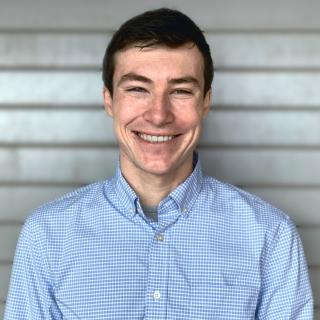
Dexter is a first year Ph.D. student in Chemical Engineering at UC Davis in the McDonald-Nandi Lab. He received his B.S. in Chemical Engineering from Columbia University, New York and his B.A. in Chemistry from University of Puget Sound, Washington through a Dual Degree Program. He is currently developing stable lines of transgenic lettuce, which express a parathyroid hormone fusion protein.

Artavazd Badalyan received a Diploma in chemistry from the Lomonosov Moscow State University in Russia and a Ph.D. in analytical biochemistry in the group of Prof. Ulla Wollenberger from the University of Potsdam in Germany where he focused on the bioelectrochemistry of molybdenum hydroxylases and on the development of electrochemical biosensors. He was a postdoctoral research associate with Prof. Shannon Stahl at the Department of Chemistry at the University of Wisconsin-Madison in the field of organic electrochemistry where he developed a novel bioinspired electrocatalyst system for the low-potential alcohol oxidation. Following a position at the Draegerwerk AG as a project leader in the field of electrochemical sensors, he joined the group of Prof. Lance Seefeldt at the Department of Chemistry and Biochemistry at the Utah State University and works on the (bio)electrocatalysis for nitrogen fixation.

Calvin (Tae Hyun) is pursuing his PhD in Civil and Environmental Engineering at the University of Alberta, Canada, under the supervision of Professor Bipro Dhar. His research scholarly pursuits center around advancing microbial electrochemical technologies, focusing on the development of bioelectrochemical sensors for the detection of naphthenic acids in oil sands process water, as well as exploring microbial electrolysis cell-assisted anaerobic digestions and microbial electrosynthesis systems for the conversion of carbon dioxide into biomethane and for biogas upgrading applications. Presently, he is a visiting scholar in Professor Craig Criddle's laboratory at Stanford University. As part of the CUBES project, Calvin works under the mentorship of Professor Craig Criddle and Dr. Nils Averesch, where he is involved in converting methane and methanol into para-hydroxybenzoic acid (pHBA) using methanotrophs through metabolic and genetic engineering. His academic excellence is also recognized through prestigious awards such as the Izaak Killam Memorial Graduate Scholarship and the Canada Graduate Scholarship from the Natural Sciences and Engineering Research Council of Canada.
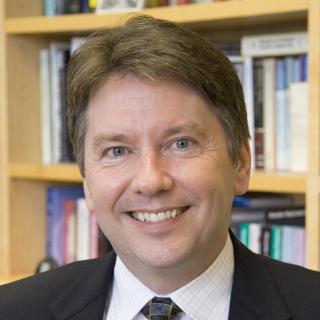
Doug Clark is the Gilbert Newton Lewis Professor in the Department of Chemical and Biomolecular Engineering and the Dean of the College of Chemistry of the University of California Berkeley.
Dr. Clark’s research interests are in biochemical engineering and biocatalysts. His research is in the field of biochemical engineering, with particular emphasis on enzyme technology, biomaterials, and bioenergy. Current projects include the structural characterization and activation of enzymes in non-aqueous media, the development of metabolic biochips for high-throughput catalysis and bioactivity screening, protein design and assembly for the development of advanced biomaterials, and enhanced conversion of lignocellulosic feedstocks to biofuels.
Jesse Delzio is a third year biochemical engineering undergraduate at the University of California, Davis. He began research with Dr. Somen Nandi and Dr. Karen McDonald in July 2017 and is currently researching drug purification through the functionalization of viral coat proteins to be used for simpler isolation in low resource environments such as Mars. He is currently working under the mentorship of Matthew McNulty. His interests include chemical engineering, biotechnology, and plant engineering. Jesse has investigated the expression and capture of recombinant parathyroid hormone from different lettuce varieties. He has also provided calculations of land area and expression levels required to sustain a team of astronauts on Mars.
Prior to his research in the McDonald-Nandi lab, Jesse worked as a lab intern for a chemical company in San Diego called Designer Molecules Inc. His main interests were chemistry and physics. He applied to the University of California, Davis and studied chemical engineering for his first two years. After discovering a project involving biomanufacturing for deep space exploration led by Dr. McDonald, Jesse's interest in biotechnology and biology grew, urging him to switch majors to biochemical engineering. He has been researching for the Center for the Utilization of Biological Engineering in Space on their Mars exploration project ever since.

Kristian is an NSERC post-doctoral fellow in Environmental Engineering and Science at Stanford University. His current research focuses on: Hard-wiring bacteria in a microbial battery, salinity gradient energy production from a mixing entropy battery, and PHB bioplastic production from C. Necator. His PhD was in Chemical and Biological Engineering from the University of British Columbia in Vancouver.
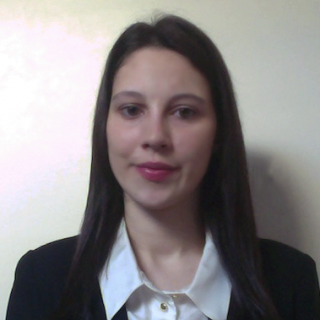
Pauline received a bachelor's degree and a master's degree in pharmaceutical sciences from the University of Lyon, France. She is currently a visiting scholar in the Department of Chemical Engineering in the McDonald Laboratory at UC Davis.

Dr. Gözde Gülseren is a postdoctoral associate in the Averesch Group at the University of Florida, where she is focused on advancing space-based myco-processing technologies. She earned her B.S. in Food Engineering from Istanbul Technical University (ITU) in Turkiye, and completed her M.S. in Food Engineering and Sustainability through a joint program between ITU, the University of Chemistry and Technology in Prague (Czechia), and Centrale Supélec (France). Dr. Gülseren’s professional experience spans food product development and fermentation, areas in which she has applied her extensive academic training. She received her Ph.D. in Food Science and Human Nutrition from the University of Florida, where her research centered on the functionality of edible mycelia. During her doctoral studies, she was awarded a prestigious INFOGEST Short Term Scientific Mission Grant, enabling her to conduct research at the National Research Institute for Agriculture, Food and Environment (INRAé) in France. Dr. Gülseren's academic and professional achievements have been recognized with numerous honors, including the Silver Celebration Award and a third-place finish in the Student Oral Competition by the Institute of Food Technologists (IFT).

Soumyajit Sen Gupta has been a member of the SDID division of the CUBES since March 2018. Prior to joining the CUBES as a post doctoral research associate with Dr. Amor Menezes, he was a doctoral research scholar at Indian Institute of Technology, Bombay since 2012. His doctoral thesis was on integrated plant-wide optimization of microalgae biorefinery, co-producing fuel, food and chemicals. He is a Bachelors' (2010 batch) from Jadavpur University and Masters' (2012 batch) from Indian Institute of Technology, Kharagpur; both these degrees have been in the discipline of Chemical Engineering. His research interests are in the area of systems design, modeling and optimization, renewable energy and process systems engineering.

Brendan, originally from Austin, TX, is a second-year chemical engineering major with a concentration in biotechnology. His research interest lies in the intersection of chemical engineering and synthetic biology. As a part of CUBES, Brendan is currently working with postdoctoral scholar Jacob Hilzinger to genetically engineer cyanobacteria to produce useful biomass in both Earth-based and Mars-based economies.

Kalimuthu Karuppanan is a Postdoctoral scholar in the Department of Chemical Engineering, at the University of California, Davis. He received his Ph.D. in Biotechnology and M.S. degree in Plant Science from Madurai Kamaraj University, India. Since he has been at UC Davis Dr. Karuppanan has contributed to a number of research projects funded by DARPA, DTRA, and NSF and he has mentored many Ph.D. students and undergraduate researchers. He was the instructor for ECH161L, Bioprocess Engineering Laboratory course, in 2014 at UC Davis. He received the campus-wide Award for Excellence in Postdoctoral Research in 2016 and Phil Thai Memorial Award in Medicine for Lung Research in 2015 for his outstanding research performance. He is a co-inventor in a recently filed patent on Novel Fusion Proteins for Treating Inflammatory Diseases. Dr. Karuppanan is a CUBES Co-PI and member of the Food and Pharmaceutical Synthesis Division.
His research is in protein biotherapeutics for treating infectious and non-infectious diseases. He has extensive experience in recombinant protein bioprocessing in planta. His work includes gene design, designing vector systems for agrobacterial-mediated gene transfer in plants, protein expression using plants and plant cell suspension cultures, protein purification using affinity and traditional chromatography systems, biophysical and functional characterization of recombinant proteins, and drug efficacy improvement by enzymatic glycan modification.

Dania Khan is a fourth year undergraduate student at UC Berkeley studying chemical engineering. In CUBES, her work involves the simulation of hybrid bioinorganic reactors. Prior to transferring to Berkeley, she was a student at Foothill Community College and worked on research related to asphaltene aggregation at oil/water interfaces, as a part of the Fuller Group at Stanford.
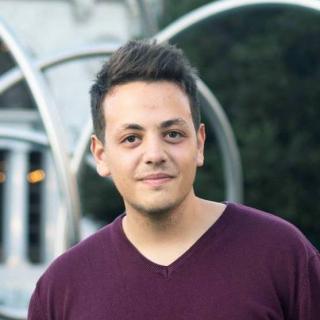
George earned a B.S. in Chemical Engineering and a M.S. in "Process, Simulation, Optimization, and Control" from the University of Patras (Greece) in 2016 and 2018, respectively. While there, he was a member of the “Laboratory of Fluid Mechanics and Rheology” where his research focused on the rheology and numerical simulation of flows involving complex yield-stress fluids. He is now pursuing a PhD in Chemical Engineering at University of California, Berkeley, working in the “Process Systems and Control Laboratory”. His current research interests lie in learning-based optimal control of complex systems that intrinsically contain uncertainties. As a member of CUBES, he will be part of the SDID, focusing on systems engineering, process modelling, dynamic optimization and control. His motivation for studying Chemical Engineering was his particular interest in mathematics as a high-school student, as well as his enthusiasm in applying scientific principles towards solving real-world problems.

Matt received his B.S. in Chemical Engineering from the University of Massachusetts, Amherst. He previously worked as a process engineer for Sanofi Genzyme. His current research focuses on developing a novel biologically-derived bioseparations platform for limited resource environments.

Ali Mesbah is an Assistant Professor in the Department of Chemical and Biomolecular Engineering at the University of California Berkeley. Dr. Mesbah's research interests are in optimization-based systems analysis, fault diagnosis, and predictive control of uncertain and stochastic systems.
Before joining UC Berkeley, Dr. Mesbah was a senior postdoctoral associate at MIT. He holds a Ph.D. degree in systems and control from Delft University of Technology. Dr. Mesbah is a senior member of the IEEE and AIChE. He was awarded the AIChE's 35 Under 35 Award in 2017 for his contributions in the area of systems and process control.
Patrick is a first-year student in the Chemical Engineering department at UC Davis, where he works in the McDonald-Nandi lab. He earned his BS in Chemical Engineering at UC Berkeley. Patrick joined CUBES because he is passionate about biotechnology and hopes to improve the safety and feasibility of space missions.

Vince is a first-year Ph.D. student in chemistry at Stanford University; he is interested in creating biodegradable organic materials as well as designing materials processing techniques such as additive manufacturing in order to make functional parts from biodegradable materials feasible for replacing petroleum based plastics. His role in CUBES will be to create and optimism polymeric systems based on methanotrophic polyhydroxyalkanoate production for the closed-loop manufacturing of tools. Before starting his graduate work at Stanford, he studied mechanical engineering and chemistry at Colorado School of Mines where he created block copolymer materials for hydrogen fuel cell membranes and computed degradation mechanisms for small molecule bis-azide species. He also worked as a design engineer at RICOH where he designed, 3D printed, and tested small parts for improving large-scale ink-jet printer functions. Vince likes to hike and carve wood in his free time.
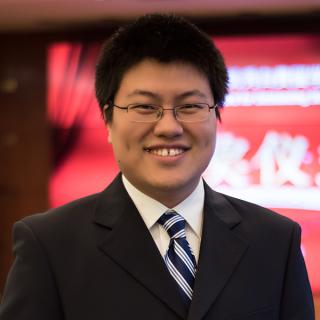
Yuexiao Shen joined Prof. Peidong Yang’s group at UC Berkeley as a postdoc in October, 2017. He finished his Ph.D. from the department of Chemical Engineering at Penn State in 2016. During his Ph.D., he worked on several projects in the interdisciplinary areas of chemical engineering, biology, chemistry and material science. He was focused on developing bioinspired membranes using membrane proteins that mimic the rapid and selective transport as seen in biological membranes. He extended to explore the potential of mimicking biological channels and lipids using supramolecular chemistry and investigating them using biophysical techniques. Yuexiao finished his bachelor and master degrees at Tsinghua University, where he studied environmental engineering. His academic accomplishments include several high-quality publications in journals such as PNAS, JACS and Journal of Membrane Science (JMS), and have been recognized by nationwide academic organizations with a number of very competitive awards. Yuexiao has already been offered an assistant professor position at Department of Civil, Environmental, and Construction Engineering at Texas Tech.

Currently Su is a postdoctoral researcher working with Professor Peidong Yang at University of California, Berkeley. His current research focuses on the bioelectrochemical CO2 fixation and N2 reduction. He received his Ph.D. degree in Chemistry on September 2017, with Professor Peidong Yang at University of California, Berkeley. During the Ph.D., he was awarded the MRS Graduate Student Award and the Chinese Government Award for Outstanding Self-financed Student Abroad. Su obtained his B.S. degree in Chemistry from University of Science and Technology of China on 2012, before joining the Peidong Yang Group as a graduate student.

Nishi is a fourth year undergraduate student at UC Berkeley with a major in chemical engineering and a minor in data science. In CUBES, she is working on using data-driven methods to explore the integrated design and control of biomanufacturing systems relevant to carbon fixation and polymer production. Some activities she likes to do are baking, dance fitness and watching television.

Tyler Wallentine is an undergraduate student at Utah State University pursuing Bachelor of Science degrees in biochemistry and biological engineering. Tyler is originally from Meridian, Idaho and comes from a family of nine. He has a passion for space exploration and wants to see the establishment of a Martian colony within his lifetime. He intends to apply his education in engineering and chemistry to help in this endeavor. His interests include chemical engineering, space system development, and environmental biotechnology. He enjoys 3D design and printing, both as a hobby and as a means of accomplishing his engineering goals. He intends to pursue a Ph.D. in bioengineering following his undergraduate studies to further progress towards a research career.
Tyler is currently working with the Microbial Media and Feedstocks Division (MMFD) of NASA CUBES. He has been continuing development of an anaerobic photobioreactor for Rhodopseudomonas palustris NifA*. He is also evaluating the effectiveness of R. palustris to utilize planetary base wastewater to grow and perform nitrogen fixation, to maximize in-situ resource utilization.
Tyler is an avid runner, having participated in both track and cross country in high school. During that time, he ran a marathon and has a personal mile record of 4:44. He also boxes in his free time. He enjoys drawing, painting, and graphic design. He also enjoys movies, camping, and writing.
Robert Waymouth is the Robert Eckles Swain Professor in the Department of Chemistry at Stanford University. Dr. Waymouth investigates new catalytic strategies to create useful new molecules, including sustainable polymers, synthetic fuels, and bioactive molecules. In one such breakthrough, Professor Waymouth and IBM researcher Jim Hedrick opened a new path for production of environmentally sustainable plastics and improved plastics recycling, earning recognition in the 2012 Presidential Green Chemistry Award.
The Waymouth Group applies mechanistic principles to develop new concepts in catalysis, with particular focus on the development of organometallic and organic catalysts for the synthesis of complex macromolecular architectures. In organometallic catalysis, the group devised a highly selective alcohol oxidation catalyst that selectively oxidizes unprotected polyols and carbohydrates to alpha-hyroxyketones. The Waymouth group pioneered the development of catalysts that can access multiple kinetic states during a polymerization reaction in order to control sequence distribution. They devised a novel strategy for the synthesis of elastomeric polypropylene utilizing a metallocene catalyst whose structure was designed to interconvert between chiral and achiral coordination geometries on the timescale of the synthesis of a single polymer chain.
In collaboration with Jim Hedrick of IBM laboratories, the Waymouth Group has developed an extensive platform of organic catalysts for the controlled ring-opening polymerization of lactones, carbonates and other heterocyclic monomers. Mechanistic studies of nucleophilic N-heterocyclic carbene catalysts revealed an unusual zwitterionic ring-opening polymerization method which enabled the synthesis of high molecular weight cyclic polymers, a novel topology for these biodegradable and biocompatible macromolecules. In collaboration with the Wender group, the Waymouth group has devised selective organocatalytic strategies for the synthesis of functional degradable polymers and oligomers that function as "molecular transporters" to deliver drugs and probes into cells. These efforts combine elements of mechanistic organic and organometallic chemistry, polymer synthesis, and homogeneous catalysis to rationally design new macromolecular structures.

Yongao (Mary) Xiong is a Ph.D. candidate in the Department of Chemical Engineering at UC Davis in the McDonald-Nandi Lab (http://mcdonald-nandi.ech.ucdavis.edu). She received her B.S. in Chemical Engineering from University of Washington, Seattle. She has mastered in recombinant protein production, purification, and functional characterizations using plant systems. Her work includes the process optimization of transient protein expression in leaves/cells utilizing agrobacteria-mediated gene transfer, chromatography method development (resin and membrane-based), and bioassay design. In addition, she is investigating approaches to modify and control protein N-glycosylation profile through subcellular targeting, the incorporation of glycan processing enzyme inhibitors and in vitro enzymatic treatment. Mary examines the effects of N-glycosylation on protein properties and molecular structures. She has started working on fine tuning of downstream process engineering of the recombinant PTH-Fc and functional characterizations using a combination of label-free protein-based assay and cell-based assays.

Kevin earned a BS in Chemical Engineering with minors in Electrical Engineering and Mathematical Sciences from Michigan Technological University. He has a strong interdisciplinary background from his time working in a variety of industries. His PhD research involves the production of pharmaceuticals in transgenic plants within the scope of the NASA CUBES project.